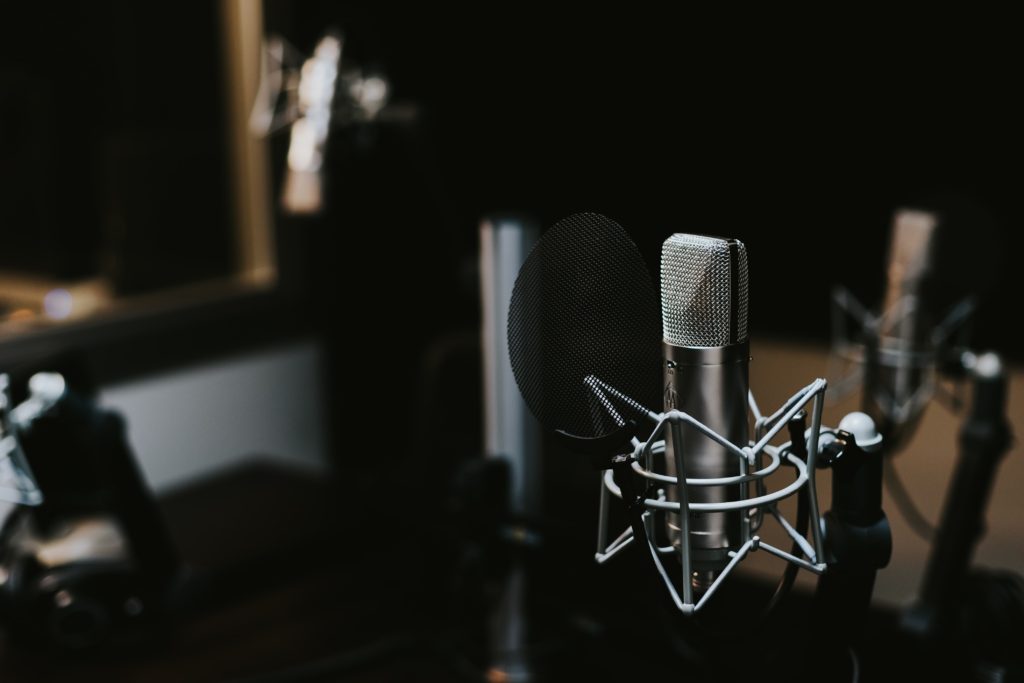Looking to start your own podcast but not sure which hosting platform to choose? In this article, we will explore the different options available and help you make the right choice for your podcasting needs. Whether you’re a seasoned podcaster or just starting out, selecting the right hosting platform is crucial for ensuring a smooth and successful podcasting experience. We’ll discuss the pros and cons of popular hosting platforms and provide you with the information you need to make an informed decision. So, let’s dive in and find the perfect podcast hosting platform for you!
Understanding Podcasting and Podcast Hosting
Podcasting has become an increasingly popular medium for sharing information, stories, and entertainment. In simple terms, a podcast is a digital audio or video file that is made available on the internet for streaming or downloading. It allows individuals or organizations to reach a wide audience and share their content with ease.

Defining a podcast
A podcast is a series of digital audio or video recordings that are released episodically. It is similar to a radio or television show, but with the added convenience of being able to listen or watch at any time. Podcasts cover a wide range of topics, from news and education to comedy and storytelling.
Purpose of a podcast host
Podcast hosting is a service that provides the necessary infrastructure to store, distribute, and deliver podcast episodes to listeners. Think of it as the platform where your podcast resides. A podcast host ensures that your episodes are accessible to your audience and takes care of the technical aspects, such as file storage, RSS feed generation, and podcast distribution.
Functions of podcast hosting platforms
A podcast hosting platform offers several key functions that are essential for the successful operation of your podcast. These include:
- File storage: The hosting platform provides cloud storage for your podcast episodes, ensuring they are readily available to your audience.
- RSS feed generation: An RSS feed is a standardized format for publishing frequently updated content, such as podcasts. The hosting platform generates this feed, which allows podcast directories and apps to automatically update with your latest episodes.
- Analytics: Hosting platforms provide valuable data and insights on your podcast’s performance, including the number of downloads, listening durations, and geographical distribution of your audience.
- Distribution to podcast directories: A hosting platform submits your podcast to popular podcast directories, such as Apple Podcasts, Spotify, and Google Podcasts, making it easily discoverable by a wider audience.
Factors to Consider Before Choosing a Podcast Hosting Platform
Selecting the right podcast hosting platform is crucial for the success and ease of managing your podcast. Here are some factors to consider before making a decision:
Ease of Use
When starting out in podcasting, it’s essential to choose a hosting platform that is intuitive and user-friendly. Look for platforms that offer easy episode uploading and management, as well as a clean and organized interface.
Price
Podcast hosting platforms typically offer a range of pricing plans, depending on the features and storage capacity you require. Consider your budget and the value you expect to get from the platform. Some hosting providers offer free plans with limited storage and features, while others have tiered pricing based on storage limits and additional benefits.
Storage limits and bandwidth
Consider the amount of storage your podcast episodes will require, as well as the bandwidth limits imposed by the hosting platform. Ensure that the storage and bandwidth provided by the platform align with your podcast’s needs and anticipated growth.
Customer support
Having reliable customer support can be invaluable when encountering technical issues or needing assistance with your podcast hosting platform. Look for platforms that offer responsive customer support through various channels, such as email, live chat, or phone.
Integration with distribution platforms
Consider the hosting platform’s compatibility with popular podcast directories and platforms. The ability to seamlessly distribute your podcast episodes to platforms like Apple Podcasts, Spotify, or Google Podcasts can greatly enhance your podcast’s reach and visibility.
Analyzing Top Podcast Hosting Platforms
With numerous podcast hosting platforms available, it’s important to compare their features and benefits to find one that suits your needs. Here’s an overview of some popular podcast hosting platforms:
Comparison of popular podcast hosting platforms
- Platform A: This hosting platform offers a user-friendly interface, advanced analytics, and easy integration with major podcast directories. It has flexible pricing plans with various storage capacities.
- Platform B: Known for its robust storage and bandwidth offerings, this platform is suitable for podcasters with high storage requirements. It also provides detailed analytics and seamless distribution to major podcast directories.
- Platform C: This hosting platform focuses on simplicity and ease of use. It has a straightforward interface, ideal for beginner podcasters, and offers affordable pricing plans with competitive storage limits.

Unique features of each platform
- Platform A: This platform stands out for its powerful analytics, providing podcasters with detailed insights into their audience and listening habits. It also offers customizable branding options to enhance the visual identity of your podcast.
- Platform B: With its extensive storage and bandwidth options, this platform is ideal for podcasters who produce high-quality audio or video content. It also offers integrated advertising options to monetize your podcast.
- Platform C: This platform excels in its user-friendly interface and straightforward episode uploading process. It provides basic analytics and easy integration with major podcast directories.
Reviewing feedback from users
It’s always helpful to consider the experiences and feedback of podcasters who have used different hosting platforms. Online communities and forums dedicated to podcasting often provide valuable insights and recommendations. Consider reaching out to fellow podcasters or reading reviews to gain a better understanding of each platform’s strengths and weaknesses.
Technical Equipment needed for Podcasting
To ensure the best possible audio quality for your podcast, it’s essential to invest in high-quality recording equipment. Here are some recommended options for different equipment categories:
Microphones
- Shure SM7B: This dynamic cardioid microphone is known for its excellent sound clarity and is widely used in professional podcasting setups.
- Sennheiser E835 Dynamic Cardioid Vocal Mic: A budget-friendly option that delivers clear and crisp audio, making it suitable for beginner podcasters.
Audio interfaces
- Focusrite Scarlett 2i2 (3rd Gen): A popular and reliable audio interface that provides high-quality sound capture and easy connectivity to your computer.
- Behringer Xenyx X1204USB Mixer: A versatile mixer with multiple inputs and effects, ideal for podcasters looking for advanced audio control and customization.
Headphones
- Audio-Technica ATH-M50x: These professional studio monitor headphones offer exceptional sound quality and comfort during long recording sessions.
- Sony MDR7506 Professional Large Diaphragm Headphones: An industry-standard choice for accurate audio monitoring and isolation.
Webcams for video podcasting
- Logitech C920 HD Pro Webcam: This webcam offers high-definition video quality and is suitable for podcasters who want to create video content alongside their audio podcast.
Studio monitors
- KRK ROKIT 5 G4: These active studio monitors deliver precise and balanced audio reproduction, ensuring accurate monitoring of your podcast recordings.
- PreSonus Eris E3.5-3.5: A compact option with crystal-clear audio and a small footprint, perfect for podcasters with limited space.
Miscellaneous equipment
- Rode PSA1 Boom Arm: A sturdy and adjustable boom arm that allows for easy microphone positioning and reduces desk noise.
- Neewer Professional Studio Recording Microphone Isolation Shield: This acoustic shield helps reduce unwanted room reflections and improves the overall sound quality of your recordings.
Podcast Recording, Editing, and Production Software
Choosing the right software for recording, editing, and producing your podcast episodes is crucial for achieving professional-quality results. Here are some popular options:
Adobe Audition Podcasting Software
Adobe Audition is a professional-grade software that offers advanced features for recording, editing, and mixing audio. It provides a comprehensive toolkit for post-production, including noise reduction, audio restoration, and multitrack editing.

Audacity Free Audio Editor
Audacity is a free and open-source audio editor that provides a range of basic editing features. It’s suitable for beginner podcasters or those on a tight budget. However, it may lack some advanced features found in paid software.
Auphonic Audio Leveling and Mastering Tool
Auphonic is an online tool that automatically adjusts the volume levels of your audio files and enhances their overall sound quality. It simplifies the post-production process by applying intelligent algorithms to optimize speech levels and reduce background noise.
Graphic Design Tools for Podcast Branding
Creating visually appealing podcast art and branding is essential for attracting and retaining listeners. Here’s a recommended graphic design tool:
The role of branding in podcasting
Branding creates a visual identity and helps podcasters establish a recognizable and consistent image. It encompasses elements such as logo design, color schemes, typography, and overall visual aesthetics.
Using Canva Graphic Design Tool for podcast art creation
Canva is a popular graphic design tool that offers an intuitive interface and a wide range of design templates. It allows podcasters to create eye-catching podcast cover art, episode thumbnails, and social media visuals without the need for prior design experience.
Creating an Optimum Podcasting Setup
Designing a podcasting setup that meets your needs and budget is essential for producing high-quality episodes. Here are some guidelines:
Deciding on the best equipment
Consider your podcast’s specific requirements and your budget when selecting equipment. Identify the crucial components, such as microphones, headphones, and audio interfaces, and prioritize investing in quality options.
Balancing budget and quality
While it’s important to invest in reliable and high-quality equipment, it’s also crucial to strike a balance with your budget. Research different options within your price range and read reviews to ensure you’re getting the best value for your investment.
Creating an optimum audio environment
Ensure that your recording environment is quiet, free from background noise, and acoustically treated if possible. Consider using soundproofing materials or foam panels to minimize echo and unwanted reflections. Additionally, using a microphone isolation shield can help improve the sound quality by reducing external noise interference.
Understanding the Role of Webcams in Podcasting
Video podcasts have gained popularity due to their engaging and dynamic nature. Here’s why webcams are essential for video podcasting and how to choose a suitable option:
Why video podcasts are popular
Video podcasts provide an additional visual element that can enhance the connection between podcasters and their audience. It allows for non-verbal communication, showcasing facial expressions, gestures, and visual aids, making the content more engaging and impactful.
How to choose a suitable webcam: considering Logitech C920 HD Pro Webcam
The Logitech C920 HD Pro Webcam is a popular choice for video podcasting due to its high-definition video quality and ease of use. It offers features such as autofocus, low light correction, and easy integration with video recording software. Consider your recording environment, desired video quality, and budget when choosing a webcam for your video podcasting setup.
Bandwidth and Storage Limits: How Much is Enough?
When selecting a podcast hosting platform, it’s crucial to understand the importance of bandwidth and storage limits. Here’s what to consider:
The impact of storage limit on podcasting
Storage limit refers to the maximum amount of data you can store on your podcast hosting platform. Consider the size of your podcast episodes and the frequency of uploads to determine how much storage you will need. It’s important to choose a hosting platform that offers sufficient storage capacity to accommodate your podcast’s growth.
Bandwidth needs for podcasting
Bandwidth refers to the amount of data that can be transferred between your podcast hosting platform and your listeners. It determines how many people can download or stream your podcast simultaneously. Consider your expected audience size and the average episode file size to ensure that the hosting platform provides enough bandwidth to meet your needs.
Understanding the storage and bandwidth offerings across platforms
When comparing hosting platforms, pay attention to the storage and bandwidth limits they offer at different pricing tiers. Ensure that the platform’s offerings align with your podcast’s current and future requirements. Some platforms may impose additional charges or limitations if you exceed the allocated storage or bandwidth limits, so it’s important to be aware of their policies.
Getting the Best Sound Quality for Your Podcast
Achieving high-quality sound is crucial for delivering an enjoyable listening experience to your audience. Here are some tips to ensure the best sound quality for your podcast:
How to achieve high-quality sound
- Use a high-quality microphone to capture clear and crisp audio.
- Minimize background noise by recording in a quiet environment and using soundproofing materials if possible.
- Position the microphone correctly to optimize sound capture and reduce unwanted noise.
- Adjust levels and equalization settings during post-production to enhance clarity and balance.
Using the Cloud Microphones Cloudlifter CL-1 Mic Activator
The Cloud Microphones Cloudlifter CL-1 is a device that provides additional clean gain and amplification to dynamic microphones. It helps optimize the microphone’s performance and ensures a strong and clear signal, especially for low-output microphones. Consider using this device if you want to enhance the sound quality of your dynamic microphone.
In conclusion, podcasting offers a powerful platform for creators to share their content and connect with a wide audience. Understanding the various components involved in podcasting, such as hosting platforms, equipment, software, and branding tools, is essential for creating a successful podcast. By considering factors like ease of use, pricing, storage limits, and customer support, you can choose the right podcast hosting platform. Additionally, investing in quality equipment, creating an optimal recording setup, and utilizing software tools like Adobe Audition, Audacity, and Auphonic, will help you produce high-quality episodes. Lastly, don’t underestimate the power of branding and the role of webcams in video podcasting. With the right knowledge and equipment, you can create a professional and engaging podcast that resonates with your audience.
